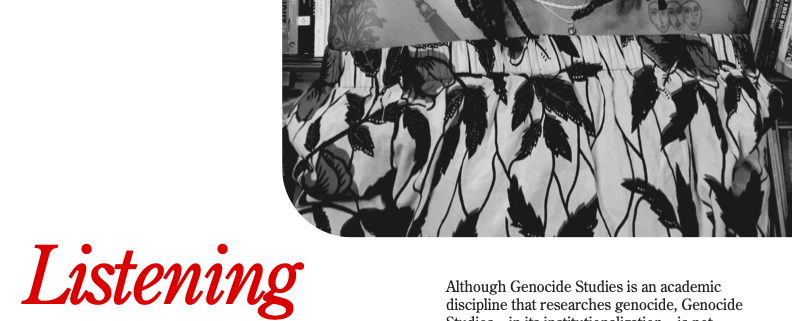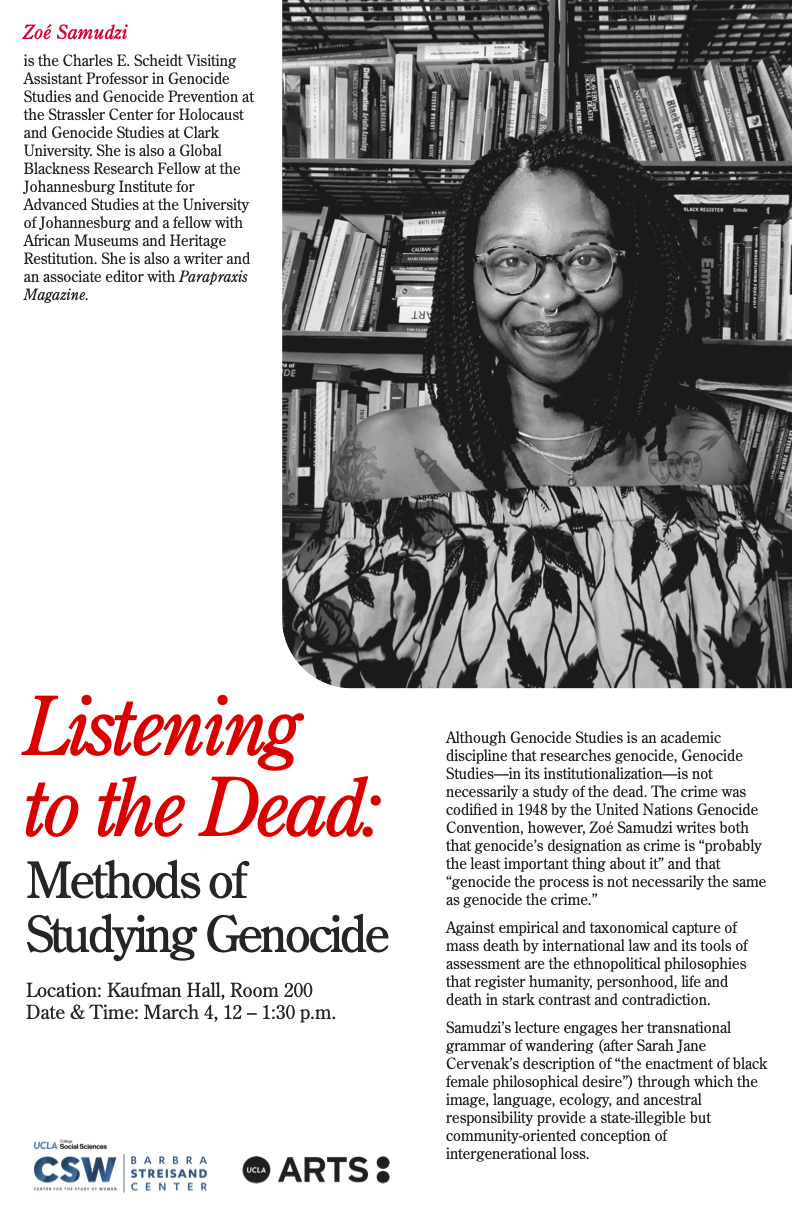
 Although Genocide Studies is an academic discipline that researches genocide, Genocide Studies—in its institutionalization—is not necessarily a study of the dead. The crime was codified in 1948 by the United Nations Genocide Convention, however, Zoé Samudzi writes both that genocide’s designation as crime is “probably the least important thing about it” and that “genocide the process is not necessarily the same as genocide the crime.”
Although Genocide Studies is an academic discipline that researches genocide, Genocide Studies—in its institutionalization—is not necessarily a study of the dead. The crime was codified in 1948 by the United Nations Genocide Convention, however, Zoé Samudzi writes both that genocide’s designation as crime is “probably the least important thing about it” and that “genocide the process is not necessarily the same as genocide the crime.”
Against empirical and taxonomical capture of mass death by international law and its tools of assessment are the ethnopolitical philosophies that register humanity, personhood, life and death in stark contrast and contradiction.
Samudzi’s lecture engages her transnational grammar of wandering (after Sarah Jane Cervenak’s description of “the enactment of black female philosophical desire”) through which the image, language, ecology, and ancestral responsibility provide a state-illegible but community-oriented conception of intergenerational loss.
Zoé Samudzi
is the Charles E. Scheidt Visiting Assistant Professor in Genocide Studies and Genocide Prevention at the Strassler Center for Holocaust and Genocide Studies at Clark University. She is also a Global Blackness Research Fellow at the Johannesburg Institute for Advanced Studies at the University of Johannesburg and a fellow with African Museums and Heritage Restitution. She is also a writer and an associate editor with Parapraxis Magazine.




